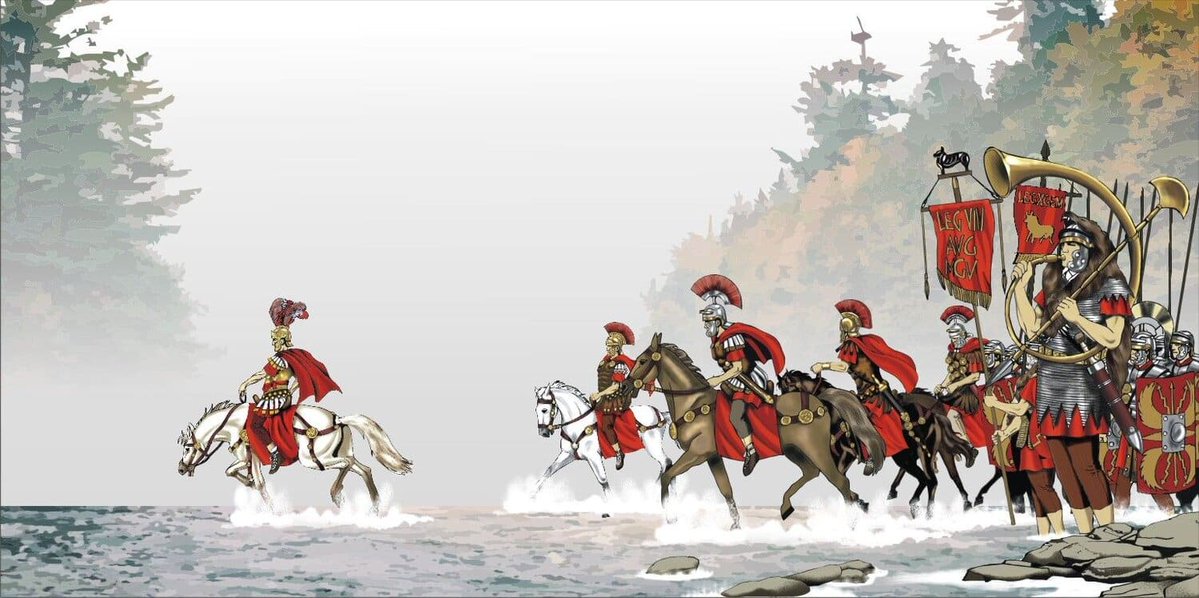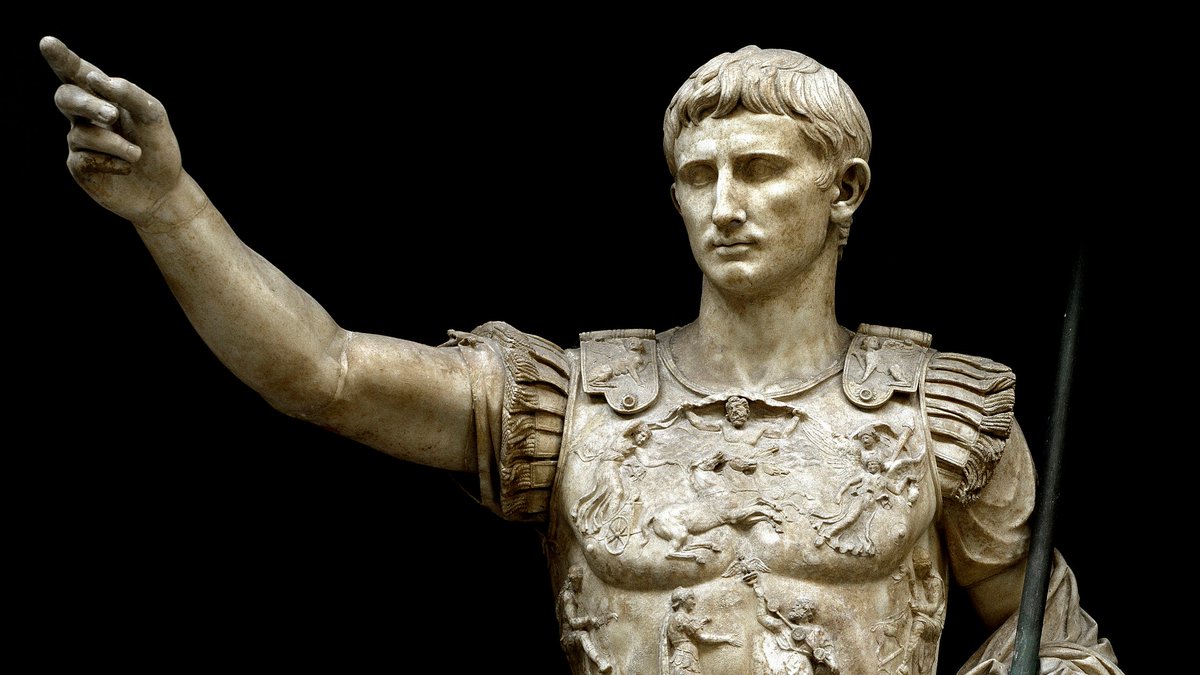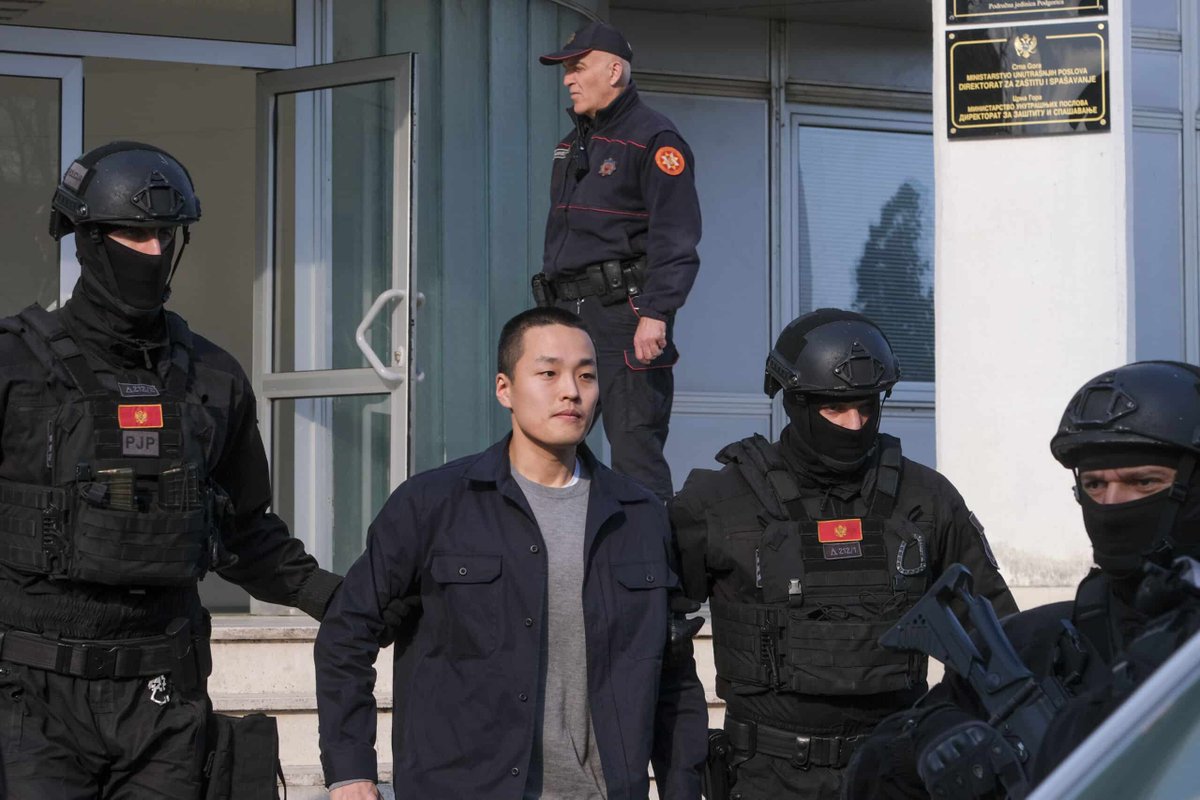Big risks can help you soar, while unmanaged risks can lead to your downfall.
Written by: Santisa
Translated by: Block unicorn
Preface
Clear goals can effectively control risks;
Big risks can help you soar, while unmanaged risks can lead to your downfall;
As you climb, the room for growth shrinks, and when risks exceed rewards, it's time to scale back;
Cryptocurrency and history are my two great passions. I can say that I spend about 80% of my waking hours on these two topics. I’ve noticed that many of the people we remember are not those who "succeeded" through good risk management. Typically, they are those who continuously upped the ante until they collapsed in spectacular fashion. Julius Caesar, Do Kwon, Alexander the Great, and Sam Bankman-Fried all acted similarly. Their insatiable risk appetite propelled them to the top of their fields, but the same appetite also led to their downfall. The ones who perform best over the long term are the few who can switch between risk-taking and risk-avoidance based on changing circumstances and goal attainment.
This article first explores two significant adventurers and managers from ancient history, as well as their modern counterparts in the cryptocurrency industry. We will discuss some gamblers, the arrogant, and those who truly adjust their bets according to their goals and appropriately reduce risks after achieving them.
The Original High-Stakes Gambler: Gaius Julius Caesar
Caesar was a mid-level Roman aristocrat who built his career through immense personal charm, exceptional strategy, and—most importantly—massive debt. He rose through the ranks, eventually becoming consul, but he did not wait years for each position; instead, he took on enormous risks and debts to accelerate his ascent. After becoming consul at 41, to avoid legal and financial reckoning, he leveraged himself further and was appointed governor of Gaul in 58 BC through bribery, serving a five-year term. At that time, his debt was equivalent to about 10% of Rome's annual tax revenue—approximately 133,333 months' worth of soldier salaries, roughly $333 million today *。(* The conversion assumes a Roman legionary's annual salary was 900 sesterces, roughly equivalent to a modern American soldier's salary of $30,000.)
After maximizing his leverage, Caesar invaded Gaul. Failure meant bankruptcy, exile, or execution. During the siege of Alesia, a relief force of 250,000 approached from the rear. Any rational general would have retreated. But Caesar, having risen so rapidly, was not only overconfident but also had no choice: he was deeply mired in debt, both financial and legal, and his term as governor (which granted him immunity) was about to end. So he doubled down, held his ground, and built an outer wall. Now, about 70,000 Romans faced approximately 320,000 Gauls **。(** The number of soldiers is an estimate provided by ancient Caesar and may be exaggerated.)

Alesia was a fortified city in northern Gaul, the last stronghold of the Gauls led by Vercingetorix against Roman rule.
Caesar won. Gaul was conquered. This victory brought him immense wealth—at least on paper—but most of that wealth was locked in illiquid assets (mainly slaves). As his term as governor drew to a close, the Senate issued an ultimatum: "Return to Rome to answer for your crimes (and debts)." Caesar always seized opportunities as he saw them, consequences could be considered later. Now was "later," and he felt he had no choice. He once again put his life on the line, leading a legion across the Rubicon River, declaring, "The die is cast" (alea iacta est).

The Rubicon River marked the local boundary of Italy; crossing it meant declaring war on the Senate.
No one expected this bold and unprecedented move. Rome had no garrison; he occupied the city, fought a civil war, and won. He was now the sole ruler of the Roman world. But he was still not satisfied; he aimed for the title of "King of Rome." Ignoring Kelly's principle (you should only bet a portion of your capital proportional to your advantage; exceeding this will inevitably lead to long-term bankruptcy), he went all in again. This final gamble wiped out his accounts: he did not receive an email from Binance but was instead stabbed twenty-three times by a group of senators. The risk appetite that pushed him to the pinnacle of power also cost him his life.
The Rise of Octavian
After Caesar's death, he adopted his 18-year-old nephew Octavian, but Caesar's general Mark Antony blocked the inheritance. Octavian mortgaged the inheritance to raise about $2.5 billion—about 750% of Caesar's original debt—to enhance his prestige and build an army. This looked like Caesar 2.0, but it was a calculated move with clear goals: Octavian pursued clear objectives rather than playing for the sake of the game.

Octavian renamed himself Gaius Julius Caesar, later known as Gaius Julius Caesar Augustus. Roman names are complex, so in this article, we will simply refer to him as "Octavian."
He knew that stagnation could mean death; taking on debt and risk gave him a chance to survive and succeed. He won more civil wars—first against the Senate, then against Antony. After becoming the sole ruler of the known world, he realized that the rewards for further risks were diminishing. He rejected the title of "King," choosing to be "First Citizen" (princeps), publicly showing respect for the Senate while secretly manipulating everything. After achieving his goals, he transformed from a high-leverage risk-taker to a conservative administrator, ruling Rome for forty years and establishing a dynasty that lasted nearly a century.
In every journey, clear goals can effectively control risks. If you don't know what "victory" is, how can you win? Goals will constantly shift unless you fix them.
Continuous gambling can become addictive; whether out of necessity or pure pleasure, we constantly find reasons for more risk until we become our own worst enemy.
Do Kwon
Similar to Caesar, Do Kwon was born into an elite family in South Korea. He built his career through personal charm, strategy, and—once again—massive leverage.

The Terra/Luna self-referential stablecoin system he created relied on perpetual debt. For every dollar the system absorbed, it generated greater liabilities, so there was not enough capital to end the game. Every UST milestone was achieved through borrowed capital; unlike Caesar, Do Kwon had no "Gaul" to conquer—no calculated bets, just leverage for leverage's sake. He held onto risk until he ultimately found himself in a cold prison cell in Montenegro. What cost Caesar his life also cost Do Kwon his freedom.

Do Kwon was arrested on March 23, 2023, in Podgorica while attempting to escape to Dubai using a fake passport.
Sam Bankman-Fried (SBF)
SBF, the founder of the bankrupt exchange FTX, used customer funds to support the platform, buy global influence, and fund various risky projects while living a lavish lifestyle. He raised $1.8 billion, pushing FTX's valuation to $32 billion and maintaining direct contact with Washington. Like Octavian, he took on enormous risks with a mindset of dominating the world. But Octavian learned from Caesar's fatal overreach, while SBF did not: he went all in time and again. If he had pulled back in time, he could have paused the fraud and slowly filled the gaps in FTX's balance sheet; instead, he doubled down and ultimately lost everything. His ending did not have to be so tragic.

SBF appeared in court in New York in 2023.
Changpeng Zhao (CZ)
CZ bet everything on speed and regulatory gray areas. He raised funds for Binance through ICOs in mainland China. Binance fully exploited regulatory arbitrage: allowing deposits and trades without KYC, listing trading pairs at will, and offering 125x leverage on obscure trading pairs—arguably running a casino.
The future backlash was obvious and inevitable. CZ's bet was that he would grow large enough to make it all worthwhile and have enough capital (including financial and political capital) to mitigate the consequences. This reckoning came in 2024 when he was sentenced to four months in a minimum-security prison in the U.S., and Binance was forced to pay a $4.3 billion fine. It can be said that SBF sought leverage in customer deposits, while CZ sought leverage by placing himself under law enforcement scrutiny. It is certain that if Binance had not grown to its current scale, the regulatory measures he faced would have been more akin to the decades-long prison sentences faced by the developers of Tornado Cash, and the entire industry's view of this "best ever" CZ would be vastly different.
Conclusion
Caesar's goals continually rose with his success, necessitating infinite leverage—statistically, his bankruptcy was only a matter of time. In contrast, Octavian risked his entire portfolio early on (the best time to take risks, with minimal venture capital), and as the scale of capital grew and returns shrank relative to goals, he abandoned risk.
Do Kwon built the entire system on leverage, not as a means to achieve goals, but as the goal itself. Like Caesar, he ultimately faced a "forced liquidation." SBF's path did not have to be so tragic. He made morally questionable, highly illegal, and extremely leveraged decisions—though almost all great historical figures have done so. The key difference is that he failed to reduce risk as returns diminished. In contrast, CZ mastered this.
Leverage is an extremely powerful tool. If used correctly, it can maximize opportunities for positive expected value and facilitate life-changing decisions. However, misjudgment or over-leverage can ruin you. My biggest takeaway is that making leverage a habit—becoming numb to unleveraged returns—statistically leads to destruction. Constantly increasing goals will ultimately leave you far below your original targets. Clear goals can effectively control risks.
"Every battle has an element of luck; ignore luck, and disaster will follow." — Loading screen of "Rome: Total War"
免责声明:本文章仅代表作者个人观点,不代表本平台的立场和观点。本文章仅供信息分享,不构成对任何人的任何投资建议。用户与作者之间的任何争议,与本平台无关。如网页中刊载的文章或图片涉及侵权,请提供相关的权利证明和身份证明发送邮件到support@aicoin.com,本平台相关工作人员将会进行核查。




